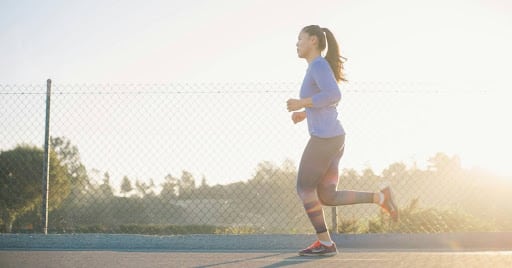 Most adults don’t get enough sleep, about 7 to 8 hours, each evening. Not getting enough sleep can impact everything from your mood, ability to focus, memory and even your fat cells, weight and athletic performance. In an article for WebMD titled Can Sleep Improve Athletic Performance? David Geier, M.D., an orthopedic surgeon and sports medicine specialist says that sleep improves accuracy, speed and reaction time. Looking for ways to boost your workout? Sleep may be the key.
Most adults don’t get enough sleep, about 7 to 8 hours, each evening. Not getting enough sleep can impact everything from your mood, ability to focus, memory and even your fat cells, weight and athletic performance. In an article for WebMD titled Can Sleep Improve Athletic Performance? David Geier, M.D., an orthopedic surgeon and sports medicine specialist says that sleep improves accuracy, speed and reaction time. Looking for ways to boost your workout? Sleep may be the key.
How sleep helps
Sleep is like a magic potion on the road to recovery. As you rest your body repairs itself and builds muscle. That’s because as you sleep you use less energy. This allows the body to direct resources to rebuilding. Your brain gets a boost during sleep, too. Poor sleep habits hamper recovery, focus, motivation, and ultimately, reduce performance. Sleep boosts your energy level and immune system, which makes it possible to bring your best self to any physical activity you choose.
Studies have shown that regular sleep is one of the best ways that athletes and weekend warriors alike can improve athleticism. Gains include improvement in stamina, speed, accuracy, focus, agility, balance and motivation.
Just as sleep improves your workout performance, your workout helps you sleep better. Exercise reduces stress, anxiety and releases endorphins that can help you relax and sleep more restfully. Don’t worry too much about exercising in the evening. The theory that exercise at night keeps you awake has been disproven. Studies have shown that you can still get a good night’s sleep even if your regular workout time is in the evening.
Though we know that sleep is important, many of still don’t get enough of it. If that is you, here are some tips:
- Know your caffeine limits – some people can have an afternoon latte and still sleep well. Others cannot. If you have caffeine sensitivity avoid it after noon for a more restful night.
- Avoid drinking at bed time – too much water can lead to bladder pressure and sleep disruptive bathroom trips. The same is true of alcohol so cut back a few hours before bedtime.
- Establish a soothing bedtime routine – about an hour before bedtime, turn off all technology and engage in restful activities such as reading, gentle stretches or meditation.
Aim for 7 to 8 hours of sleep each evening to get more enjoyment and higher performance outcomes when you exercise.



